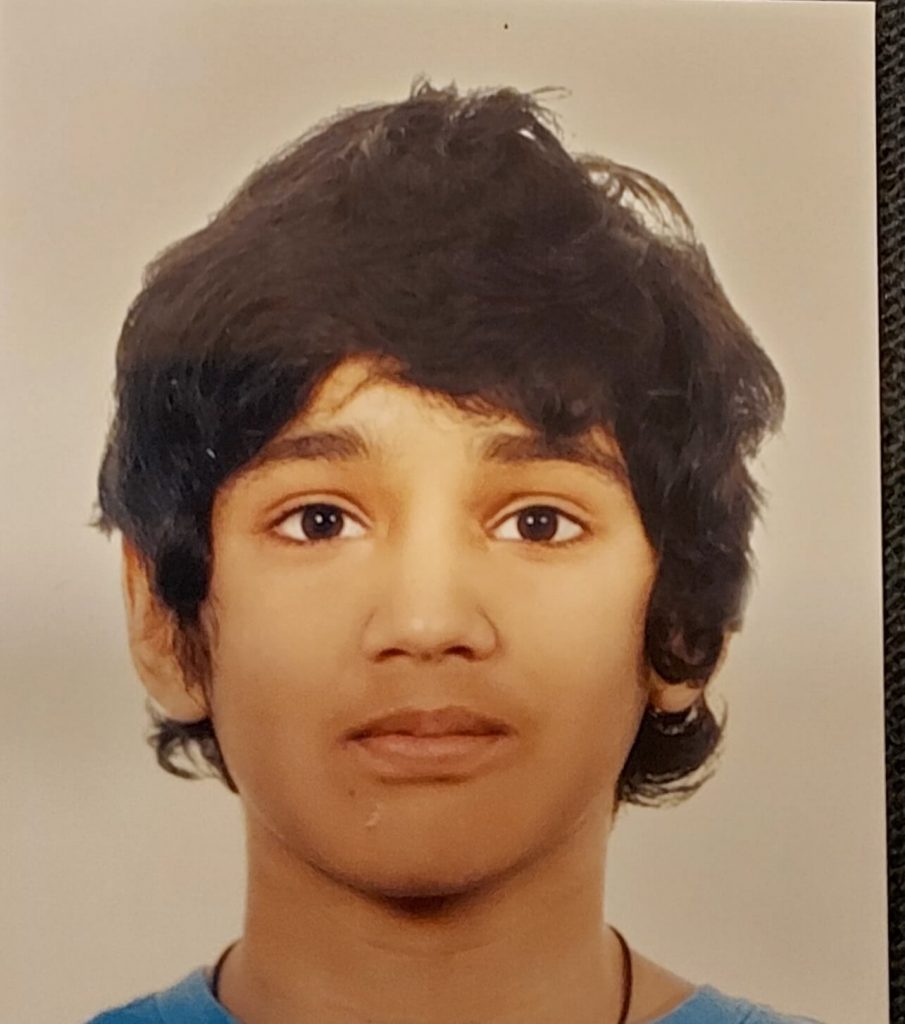Our Schools
Hello there! Have you ever wondered how a class assembly is made? How are the tasks segregated, and how the final performance must be as smooth as silk?
Well, explore with me, as I brief you on the process of how Grade 9 creates an amazing class assembly.
A class assembly is a gathering of students in a class, where several activities are held. Festivals, Music, Topics of Awareness, and Events in School are some of the themes that most class assemblies are based on. Though virtually, we, the students of Grade 9, focused on preparing our class assembly on the theme of ‘Father’s Day.’ The month of June holds various special days such as – International Yoga Day, International Olympic Day, Father’s Day, and so on. We, Grade 9, had decided to celebrate the unsung heroes in our lives – our Fathers.
This is how the assembly preparation went about. On the first day, we held a combined meeting and brainstormed on ideas that could work as the theme for our class assembly. After hours of contemplation, we settled on the theme of ‘Father’s Day.’ Our Fathers provide us with countless items throughout our lives and so, we decided to let them take the spotlight for this year’s class assembly. Now, how were the tasks and responsibilities divided? We wanted the entire of Grade 9 to participate in this class assembly so we could include everyone’s skills and talents. There were 5 groups created, – The Script Committee, The Planning Committee, The Editing Committee, The Music Committee, and The Message Committee.
The class was divided into these groups based on their preferences and abilities. The Script Committee dealt with the script-writing of the class assembly. They wrote the plot of the skits and arranged the order of the assembly. Next, the Planning Committee handled the entire assembly by giving updates and by maintaining the flow of the assembly. The Editing Committee assisted in editing all the raw skit scenes and collages. They also helped in enhancing the overall performance of the class assembly. Moving on to the Music Committee, all the musically talented students were brought to this group. Together, they had to compose a melodious song that would go along harmoniously with the class collage.
And lastly, the Message Committee. I was put into this group and I had to create Father’s Day Messages! I started by taking two A4 sheets of paper and attaching them together to create a larger paper. Here, I selected a Father’s Day quote by Nelson Mandela and wrote it on a blank canvas. I also adorned the message with bright colours and annotations. “To be the Father of a nation is a great honour, But, to be the Father of a family is a greater joy.” This is the quote that was selected, and there were eight others in my group who also came up with captivating quotes.
For the next two weeks, our class was busy preparing for the assembly. There was strenuous recording, editing, designing, and many rehearsals that took place. Despite the hard work, everything came into order perfectly. The MC’s were ready, the skits had been recorded and edited, and the messages were also displayed.
On the day of the class assembly, we were all tense but excited to present what we had worked hard for. I was personally nerve-wracked and wished my classmate’s good luck. After fifteen minutes, our class took a deep breath and noticed the virtual round of applause given by the audience. The class assembly went seamlessly and ended on a good note. I was delighted to participate in this class assembly and make an observation on it. There was a lot of cooperation from my fellow classmates and my teachers, and together we were able to pull off this show! This was an amazing experience.
#TeacherBlogger: How Pets Influence a Child’s Life By Ms. Shubra Rai, Science Teacher, Middle School, Ekya ITPL
Imagine having a hard stressful day at the office and coming home to beautiful eyes and exciting jumps. The whole day’s stress just melts off when your pets rest their head in your laps because for them the sight of you is their whole world. This sounds so wholesome and perfect but being a pet parent, you know that you are their whole life and for them, everything revolves around you and your happiness. As adults, if we are so overjoyed at the sight of our pets, imagine the positive effect they can have on the children.
According to the research paper published by NCBI, childhood and adolescence are crucial life phases in their contribution to the quality of health, emotional well-being, learning, and behavior across the life span. Companion animals (including horses, dogs, cats, rabbits, and other living
beings) have the potential to promote healthy emotional youth development in many ways, as shown by research in Human-Animal Interactions (HAI). Pets are becoming an important family member nowadays and rightly so.
In addition to enhancing mood and improving the quality of health and emotional well-being, pets can help children learn about responsibility. Children can be entrusted with the tasks of taking care of their pet’s meals and hygiene. Moreover, children can learn trust and compassion from
their pets. According to the research done by Michigan University, children with pets grew up to be more empathetic and socially aware than children without any pets. Children can also find a non-judgemental, secret keeper and best friend in their pets who listen to their hardships without any judgments. This can prove beneficial for a child’s mental and physical well-being.
I want to conclude with a quote “Until one has loved an animal, a part of one’s soul remains unawakened.” Pets can enrich our lives with love, compassion, empathy and so much more. All the children in the world deserve a pet’s love and vice versa.
By, Ms. Shubra Rai, Science Teacher, Middle School, Ekya ITPL
#TeacherBlogger: How can social studies be used practically? – By, Madhu Bharatia, SST teacher – Senior School, Ekya ITPL
How can social studies be used practically?
I have been teaching social studies for over five years now and one thing that astonishes me is how fuzzy students are about why we teach social studies as a subject in schools? When I ask this question in my class, I usually get specific content-focused responses such as: to learn about history and geography, India and the world, other people and cultures, government and politics, or even current events. True, we learn about history, geography, economics, and politics but does this bookish knowledge help one to understand the real world?The answer is YES! Let’s talk about history. What is history? In simple words, it's our past put up in the present to think about our future. Today the entire world is experiencing a pandemic. Our history says we have experienced this earlier too and yes because of this experience of the past we can figure out our present. Researchers constantly warned us about the second wave and that it would be much deadlier than the first. How did they know about it? How did they manage to make such strong statements? This is because our history specifies so. I have been to 3-4 countries and have noticed that because of globalization, everything is available everywhere. I remember when I was in the United States; the first few days went fine but after a week I was craving my Indian food. We searched for an authentic Indian restaurant to have our lunch. The food acted as water on fire, but it still lacked the same taste that I was used to back at home. That's when I realized that when I was taught geography in my school, my teacher once told me that our lifestyle, food, and clothing-everything depends on the geography of a place. Today because of Globalization it is possible to get everything everywhere, but one cannot get the same taste, same culture and same lifestyle. Travelling reminded me of another incident. I was traveling from Kolkata to Bangalore. I still remember it was raining heavily and because of some political rally I was late for my flight. I quickly checked my ticket for the closing time for boarding. It was mentioned half an hour before the scheduled time. Somehow, I managed to reach the airport 40 min before the scheduled time. But, as soon as I reached the counter, they said I cannot board as boarding is closed. I remember that day I could only manage to get my flight rescheduled for free because I knew as a consumer what my rights were and if things were to go the legal way the airline had to refund my money back. It was an interesting yet eye opening experience because as a citizen I knew what my rights were and how I can always fight for them. It is rightly said, “THE MOST IMPORTANT LESSONS IN LIFE ARE USUALLY NOT LEARNED IN THE CLASSROOM.” It is essential for this generation to develop their young minds with thinking ability, innovate & function adequately in society. It is a social science- the science of understanding people’s needs and their unique relationship with art, literature, history, music, work, philosophy, community, technology, and psychology. All the knowledge we have of nature depends upon facts, for without observations and experiments our natural philosophy would only be a science of terms.
By, Madhu Bharatia, SST teacher - Senior School, Ekya ITPL









Leave a reply